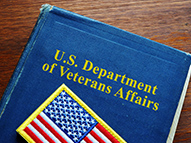Federal Affairs

The Government Affairs office in Washington, DC seeks to build NCSBN’s presence and influence in the nation’s capital on issues impacting NCSBN members. NCSBN staff seeks to educate Congress, government officials and other policy stakeholders on the purpose and function of state based nurse licensure, regulation and promotion of NCSBN’s public policy agenda. We strive to promote nursing regulatory bodies and serve as a resource on nursing regulation, searching for and pursing opportunities that NCSBN can collaborate with other organizations on mutual issues of importance.
State-based Licensure

The primary responsibilities of state boards of nursing are regulating, overseeing, and enforcing the practice of nursing throughout a jurisdiction as dictated by a state’s nurse practice act. The vigilant and careful monitoring provided by state boards of nursing makes the state-based system integral to their mission of public protection. NCSBN was created to bring nursing regulatory bodies together to act and counsel with one another and lessen the burden of state government. We strive to offer nurses the opportunity to practice safely and competently across state lines without undue licensure burdens.
Telehealth

NCSBN supports efforts to expand telehealth as a model of care delivery. Health care technology can simultaneously decrease the cost of care and increase patient access to care. Just as with care delivered in-person, provider licensure in telehealth interactions is based on the location of the patient. This avoids confusion for nurses, patients and nursing regulatory bodies and reduces jurisdictional issues should the patient need to seek legal recourse. NCSBN works closely with state and federal lawmakers as well as telehealth advocates to advance policies that reduce the burden of licensure to both providers and patients utilizing telehealth services. License portability for nurses practicing telehealth should be facilitated through the Nurse Licensure Compact (NLC) and Advanced Practice Registered Nurse (APRN) Compact, the innovative licensing models that allow nurses to practice in all participating states with one multistate license.
Veterans

NCSBN has a longstanding, close relationship with the Department of Veterans Affairs (VA) that has resulted in improvements to patient safety and access to care. Under the current VA licensing model, nurses employed by the Department of Veterans Affairs can practice in any state without obtaining additional licensure when delivering in-person care. NCSBN supports legislative and regulatory efforts that would allow VA-employed nurses to deliver care through telehealth services as well. NCSBN also works closely with the VA as they work to improve patient safety by facilitating communication with nursing regulatory bodies and introducing NCSBN products like Nursys, the only national database for verification of nurse licensure, discipline and practice privileges.
Opioid and Substance Abuse Treatment
NCSBN supports efforts at the federal level to combat the opioid crisis and ensure safe access to substance use disorder treatment. As of 2023, Section 1262 of the Consolidated Appropriations Act of 2023 removes the federal waiver requirement to prescribe buprenorphine for the treatment of opioid use disorder. It also removes other federal requirements associated with the waiver. Providers must have a valid DEA registration and must be authorized to prescribe buprenorphine in the state in which they deliver care. Additionally, all new DEA registrants most comply with the requirements of Section 1263 of the Consolidated Appropriations Act of 2023. Registrants should review their Nurse Practice Act and their state’s requirements on this issue.
Nursing Community Coalition
As a member of the Nursing Community Coalition, NCSBN supports Nursing Workforce Development programs (authorized under Title VIII of the Public Health Service Act [42 U.S.C. 296 et seq.]) that address the supply and distribution of qualified nurses to meet our nation’s healthcare needs. The Nursing Community Coalition and their members are the cross section of education, practice, research and regulation within the nursing profession. NCSBN works collaboratively with the Nursing Community Coalition to advance their advocacy efforts and serves as a member of the Steering Committee.
Contact us
Didn't find what you are looking for? Contact us with any comments or questions.
Submit an Inquiry